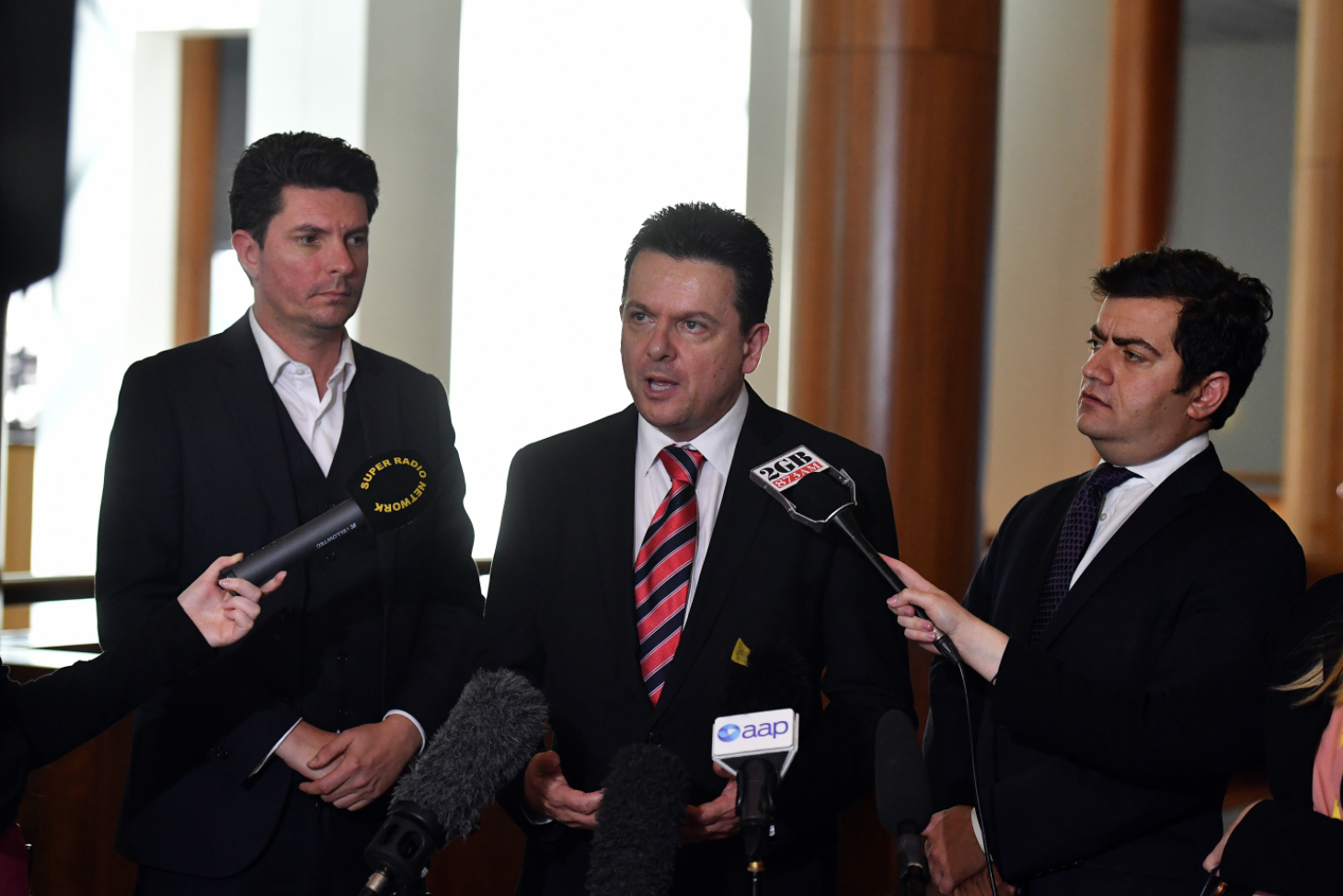Bad politics shouldn’t sink good ideas for public interest journalism
The future of public interest journalism in Australia is uncertain, especially if it continues to suffer from unwanted interference, argues Deakin University’s Matthew Ricketson.
The Senate inquiry into the future of public interest journalism began as a gleam in the media-trained eye of Labor senator Sam Dastyari. It ended on February 5, 11 days after he left parliament, his political reputation in tatters over his conduct in relation to Chinese donors to the Labor Party.
This suggests the inquiry’s recommendations are unlikely to get much traction, but the very real issues it was investigating remain unresolved. How did quality media get into such a pickle and what can be done about it?

Former senators Scott Ludlam, Nick Xenophon and Sam Dastyari announce the public interest journalism inquiry in May 2017. Mick Tsikas/AAP


Astonishing that an academic who teaches journalism should be promoting government media. You only need look at the pathetically weak response of the abc when government wanted to shut down a leak to understand that a dependence on government in media is a recipe for lousy journalism.
There are a few people like Ricketson who push this barrow. They include mostly academics, union officials and people with very limited experience as reporters like Eric Beecher. They need to be ignored.
Everyone talks about the way the internet killed the funding model of journalism. Few people talk about the internet’s accomplice in the crime – journalists.
The audience doesn’t trust them, and frankly why should it?
We are talking about a job role – and it will become abundantly clear why I say job role rather than profession – which has no professional body, no licensing of practitioners and meekly accepts constantly declining standards. Despite its very real public importance.
The failure of the majority of journalists to meaningfully live up to fourth estate ideals is a huge problem that largely goes unaddressed.